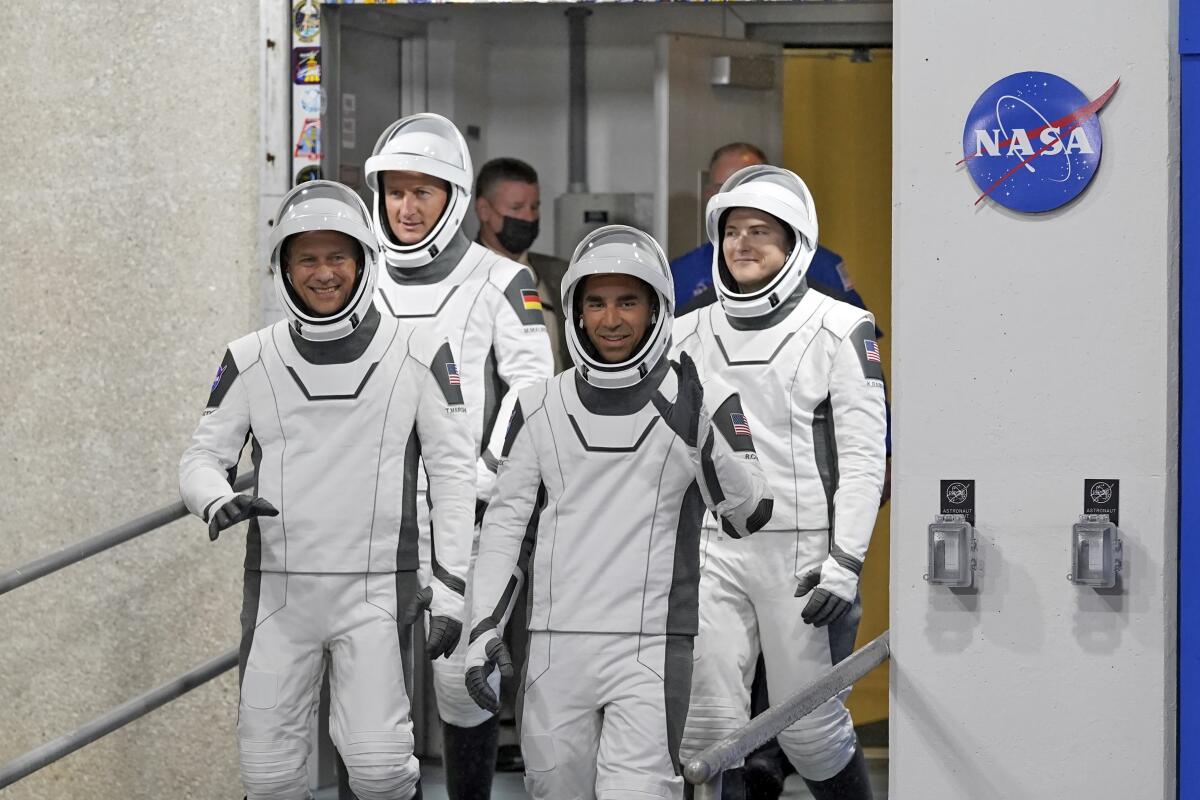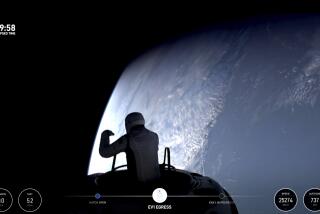SpaceX crew launch marks 600 space travelers in 60 years

CAPE CANAVERAL, Fla. — A SpaceX rocket carried four astronauts toward orbit Wednesday night, including the 600th person to reach space in 60 years.
The repeatedly delayed flight occurred just two days after SpaceX brought four other astronauts home from the International Space Station. They should have been up there to welcome the newcomers, but NASA and SpaceX decided to switch the order based on Monday’s ideal recovery weather in the Gulf of Mexico.
Germany’s Matthias Maurer claimed the No. 600 position, according to NASA, based on his mission assignment. He and his three NASA crewmates should arrive at the space station in under 24 hours, well over a week late.
One of the astronauts — NASA isn’t saying which one — was sidelined last week by an undisclosed medical issue. The crew member is fully recovered, according to NASA. Officials won’t say whether it was an illness or injury, but they noted it wasn’t COVID-19.
Bad weather also contributed to the flight delays.
Wednesday night it was drizzling when the four astronauts said goodbye to their families, with umbrellas held over them. Forecasters promised the weather would improve, and it did.
The list of 600 travelers ranges from those who have barely scratched space — like actor William Shatner last month — to U.S. and Russian astronauts who have spent a year or more in orbit. This year’s surge in space tourists helped push the tally over the 600 mark.
That averages out to 10 people per year since Yuri Gagarin’s pioneering flight in 1961, Maurer noted.
“But I think in a very few years, we will see an exponential rise … because now we’re entering the era of commercial spaceflight,” he said after arriving at NASA’s Kennedy Space Center two weeks ago.
The crew launch marked SpaceX’s fourth for NASA in 1½ years and the company’s fifth passenger flight overall — a charter flight for four that skipped the space station. The Dragon capsule’s toilet leaked during their three days in orbit in September, necessitating a quick redesign of the flushing system in the newest capsule, named Endurance by its crew.
A balky parachute during Monday’s descent had SpaceX engineers poring over the data before giving the go-ahead for Wednesday’s launch. One of the four chutes opened more than a minute late, a problem seen in testing and well within safety limits, SpaceX officials said Tuesday.
Maurer is one of three newbies on the crew. The 51-year-old was a finalist when he first applied to be an astronaut with the European Space Agency. Encouraged, he left his research job at a medical company and joined the space agency as an engineer, and he made the astronaut cut in 2015.
Also on board:
- Air Force Col. Raja Chari, 44, the first space rookie in decades to lead a mission to orbit for NASA. A test pilot from Cedar Falls, Iowa, Chari accumulated more than 2,500 hours in fighter jets, including combat missions in Iraq.
- Dr. Thomas Marshburn, 61, will be the oldest person to live aboard the space station and perform a spacewalk. Born in Statesville, N.C., he pursued a career in emergency medicine, then joined NASA in 1994 as a flight surgeon. This is his third trip to the space station.
- Kayla Barron, 34, a Navy lieutenant commander from Richland, Wash. She was among the first women to serve as submarine warfare officers. Added to the flight in May, she’s No. 601 in space.
During their six-month station stay, they will welcome two groups of tourists. A Russian film crew recently spent two weeks at the station, making a movie.
The new crew will be joining three station residents — two Russians and NASA’s Mark Vande Hei, who celebrated his 55th birthday Wednesday.
“NASA and @SpaceX are lighting a big candle in the sky for you tonight,” NASA tweeted before the launch.
More to Read
Inside the business of entertainment
The Wide Shot brings you news, analysis and insights on everything from streaming wars to production — and what it all means for the future.
You may occasionally receive promotional content from the Los Angeles Times.










